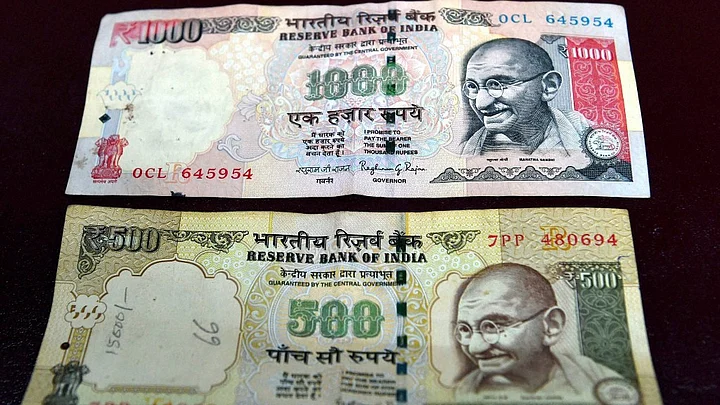India is a land of the many but also of the divided. If you are reading this, you are probably not representative of the aforementioned superset, and hence you are in shock from all that has gone down in the last week.
While our aspirations of giving identity to the many has made a dent, via Aadhar, a significant part of the economy still functions on the basic premise of give and take, money stored under mattresses, or sandooks. We invest in our goats, silver bangles, or tie it up at the corner of our Chunni.
Wives who are apportioned a certain amount every month for household expenditure, and have little say in decision making, cut corners and save a hundred (or a few hundred) every month in the hope of one day sending their girl child for a few extra months to school or saving enough for her dowry.
In a country such as ours, the grey prevails over the black and the white. Sweeping statements don’t work and neither do sweeping policies; we often need a middle ground and we always need caveats.
As OUTLINE India, we work in the hinterlands with a rural population, our fieldworkers do good work but are often from the informal economy; individuals with limited educational backgrounds, people who may or may not have bank accounts. This facet is not just symptomatic of our work, but that of numerous cottage industries, and shopkeepers that operate out of 4 x 4 feet spaces. Why this must be discussed is because it represents the ‘superset’ of our population.
Data from our Facebook walls, and Twitter feeds, and to a very large extent from our news channels, as consumed by you and I, are not reflective of what happens across India. You step out of Delhi and Gurgaon, and drive down 90 minutes outside of the city, and what you see mirrors ground realities.
My field team and researchers across Bangalore, Chennai, Bihar and Rajasthan have been living nothing short of a nightmare in the last week.
Our work came to a jostling halt in certain parts as taxi drivers shut shop, cafes resorted to exploitative money exchange offers (you purchase items for 350 in return for a 500 note) and as ATMs in places such as Gaya, Bihar largely stayed shut – no questions asked.
One of our teams was stranded, for railway booking agents who have quotas under tatkaal refused to accept bookings. Some of our fieldworkers shared stories of dismay as their siblings working at construction sites and shops got fired for ‘they were no longer needed’, as we moved towards a cashless economy.
We have done studies on the concept of ‘wants’ and ‘needs’ across numerous states in the context of financial literacy. Our findings show that many don't approach banks – for ATMs stay shut days at a go – and they must wait weeks for money to be credited in the event that the employer agrees to online transactions. The nearest bank is an expensive bus ride away (expensive from the point of view of the stakeholder) and because credit in rural parts is quick and easy (despite its expensive and often exploitative nature).
There is a fear of signing cheques and putting your thumbprint onto documents one can’t read. In our field trips to rural parts, hotels and taxi services, refuse to allow you in/offer service, unless you make payments in cash.
If you have ever visited a Koderma in Jharkhand or a Kanpur in Uttar Pradesh, you must know the battle it is to get bills and invoices to seek reimbursement from your office.
On a particularly long field assignment, for a ten-day stay for five rooms, our hotel manager made us travel to an ATM 40 km away to withdraw cash, or leave the premises. Swiping machines are automatically rendered useless and kitchens shut early if you mention you are carrying a card.
Nothing that I have said above is news. All of us are aware, and yet we debate impact on our minorities (you and I) – who must take autos instead of cabs when something as sudden as demonetisation hits us; when we take a break from our cash-on-delivery models and migrate to PayTM.
About 70 percent of our population is not online, and the 30 percent that does go online has usage patterns that cannot be accounted for as financial prudence.
Policy does not change overnight and such measures follow the classic J curve; they erode wealth at the lower echelons much more than at the top.
Our problems sing a tune of the past. We live in a country where a significant a significant percentage of us don't know our age (based on my experience, I would say this is about 30 percent or higher in rural India). When you ask a respondent their date of birth, you are met with smiles, laughter, a scratching of the head, a hazy or a completely arbitrary number.
India must endorse its greys, revel in them, and find solutions that are not knee jerk.
(The writer is the founder of OUTLINE India. This is a personal blog and the views expressed above are the author’s own. The Quint neither endorses nor is responsible for the same.)
